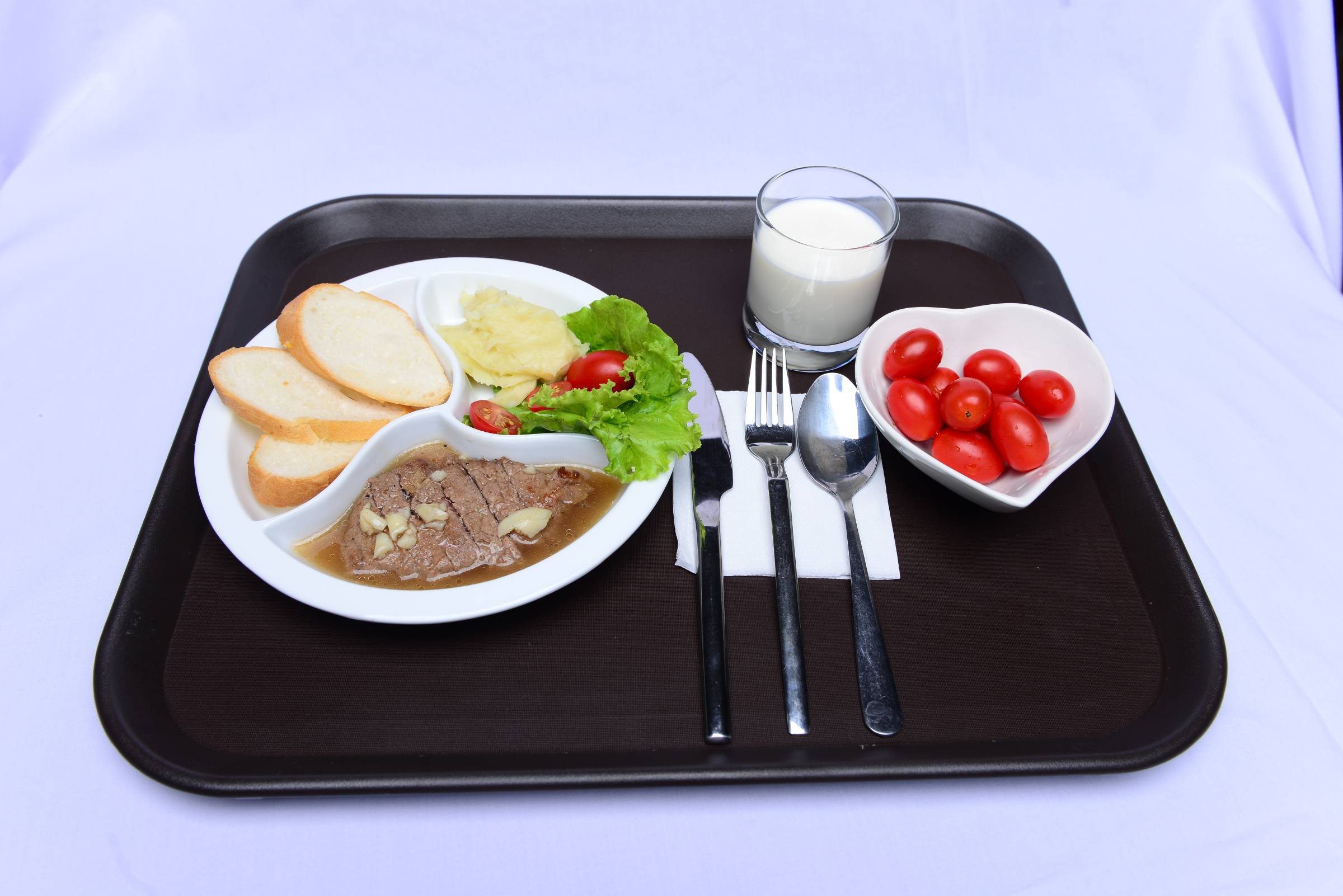Uterine fibroids are growths in the smooth muscle and connective tissue of the uterus, leading to the formation of masses ranging from a few millimeters to several centimeters in the uterine muscle. This condition is common in women aged 30-35. Most fibroids are benign and don't cause troublesome symptoms. However, some cases can lead to complications that harm women's health and fertility.
The exact cause of uterine fibroids remains unclear. However, increased estrogen levels can nourish and promote fibroid growth. Doctor Tran Thi Tra Phuong, from the Department of Nutrition and Dietetics at Tam Anh General Hospital in Hanoi, advises women with uterine fibroids to monitor their diet. This is because diet is closely linked to the increase in size and number of fibroids. Women with this condition are generally advised to avoid foods that can increase estrogen levels.
Soy milk contains a large amount of isoflavones, a type of phytoestrogen (plant-based estrogen). Doctor Phuong explains that although isoflavones have a chemical structure similar to endogenous estrogen, their activity is weaker, so they cannot cause hyperestrogenism to the extent that it promotes uterine fibroid growth. Isoflavones can act as estrogen receptor modulators. When estrogen levels in the body are too high, they can compete with the actual hormone to bind to the receptors and help regulate its effects. As a result, they reduce the effects of estrogen produced by the body, inhibiting estrogen absorption in fibroid cells and reducing both the symptoms of the disease and the risk of future uterine fibroid surgery. Conversely, when estrogen levels are low, isoflavones can supplement estrogen activity, reducing perimenopausal symptoms such as hot flashes and sweating.
Soy milk is rich in antioxidants, high-quality plant protein, B vitamins, vitamins D and E, minerals like calcium, iron, magnesium, phosphorus, potassium, sodium, and omega-3 and omega-6 fatty acids, which are beneficial for cardiovascular and bone health. Consuming soy milk can help reduce bad cholesterol, improve blood pressure, and support weight management. These are beneficial factors for women with uterine fibroids because obesity, insulin resistance, and chronic inflammation are all linked to the progression of the disease.
 |
Soy milk contains many nutrients beneficial for people with uterine fibroids. Illustration photo: *Tam Anh General Hospital* |
According to Doctor Phuong, the effects of soy milk on fibroids vary among women. Because there is no concrete scientific evidence, there are currently no definitive recommendations that women with uterine fibroids should completely avoid soy milk. However, consumption should be moderate and appropriate for one's health condition. Women should prioritize pure soy milk without added sugar, flavorings, or preservatives, and limit industrially processed soy products with added sugar, creamer, or genetically modified soybeans.
Women who are using hormone therapy, preparing for pregnancy, or have large or complicated fibroids should consult their doctor before supplementing with isoflavone-rich foods or using soy-based supplements. Misuse or overuse of high-dose soy supplements can alter hormone levels and affect health.
Women with uterine fibroids should maintain a balanced diet, including green vegetables, whole grains, plant and animal protein. They should limit red meat, saturated fat, refined sugar, organ meats, processed foods high in salt, and alcohol. These foods can stimulate fibroid growth and increase insulin secretion, leading to weight gain and larger fibroids. Women should have regular gynecological check-ups every 6 months to monitor the size and progression of fibroids. This allows doctors to monitor and provide appropriate treatment.
Trinh Mai
| Readers can submit questions about obstetrics and gynecology here for doctors to answer. |












